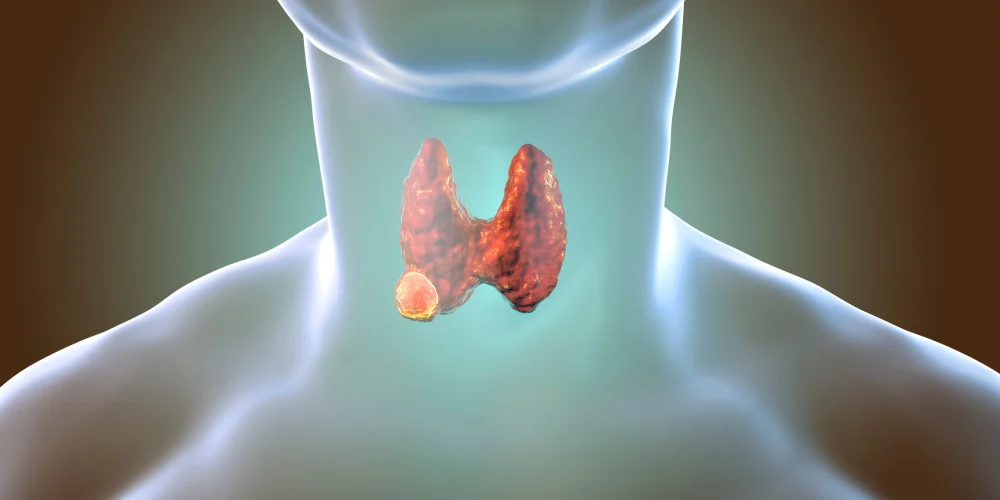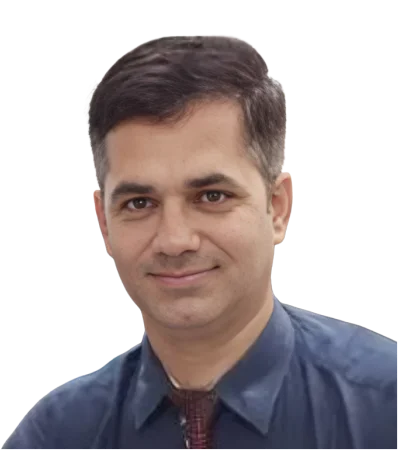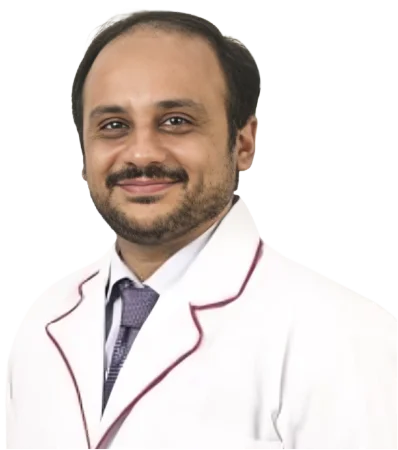Minimally invasive endocrine surgery
Endocrine Disorders with Advanced Minimally Invasive Techniques
Minimally invasive endocrine surgeries are an approach that is specifically developed to treat problems with the endocrine glands like thyroid, parathyroid and adrenal glands. It has less risk, fewer scars and faster recovery when in comparison to conventional open surgery. The doctors at Chirayu Super Speciality Hospital, we employ the most advanced methods and technologies to ensure that our patients receive only the most advanced level of care. Our skilled surgical team is dedicated to providing quality treatment with a minimal impact the procedure on you as well as your lifestyle.

What is Minimally Invasive Endocrine Surgery?
Minimally invasive surgery for endocrine disorders refers to procedures that are performed with small incisions typically using instruments that are specialized as well as advanced imaging technology. This procedure is used to treat ailments which affect glands like the parathyroid, thyroid and adrenal glands, including hyperparathyroidism and tumors and other adrenal gland diseases. The purpose for these treatments is to eliminate or treat the gland affected precisely while minimizing the trauma to surrounding tissues which results in faster recovery and less complications.
Who Performs Your Surgery?
The Minimally invasive endocrine surgery for endocrine disorders in Chirayu Super Speciality Hospital will be carried out by a team of highly experienced endocrinologists and endocrine surgeons. They have years of experience treating complicated endocrine conditions and are adept at making use of the most advanced minimally invasive procedures. This surgical group is aided by the latest technology and a full-service team of anesthesiologists, nurses and patient coordinators who work closely to guarantee a comfortable surgery and the best possible outcomes.
Types of Minimally Invasive Endocrine Surgery
- Minimally Invasive Thyroidectomy : Removal of all or part from the thyroid gland using tiny incisions, usually by using robotic or video-assisted techniques. This technique is commonly employed in the treatment of thyroid tumors, cancer or hyperthyroidism.
- Minimally Invasive Parathyroidectomy : Surgery to remove one or two parathyroid glands by tiny incisions, usually supported by computerized imaging. This procedure is usually done to treat hyperparathyroidism due to parathyroid glands overactive.
- Minimally Invasive Adrenalectomy : Removal of both or one adrenal glands with laparoscopic or robotic methods which reduces pain and recovery time, while successfully treating adrenal tumors and hormone-related diseases.
Symptoms Indicating the Need for Surgery
- Thyroid disorders : Unusual weight fluctuations and fatigue that persists swelling of the neck trouble swallowing or hormone imbalances.
- Parathyroid Diseases : A high level of calcium kidney stones, bone pain fatigue, fatigue, or digestive problems.
- Abdominal Disorders : A high blood pressure and weight gain that is not explained, unresolved weight loss, extreme fatigue and indications of hormone imbalances.
Diagnosis for Minimally Invasive Endocrine Surgery
The diagnosis of Minimally invasive endocrine issues typically requires the use of blood tests to determine hormonal levels and imaging tests like ultrasounds, CT scans, or MRIs to examine glands, and fine needle aspiration biopsies for evaluating any tumors or nodules. Based on these results your doctor will decide that you require surgery, and will recommend the most suitable minimally invasive method to treat your problem.
Treatment Process
The treatment begins with an extensive assessment and discussion with our endocrine specialists who will go over the various surgical options, including advantages and potential dangers. When you are scheduled for surgery, you’ll receive general anesthesia to help you relax while the operation will then be carried out with small incisions and instruments. After surgery, you will be monitored in our recovery unit, management of pain as well as instructions for home treatment. Most patients are able to resume normal activities in some days to weeks, based on their particular surgery they had and their general health.
Care and Recovery After Surgery
The healing process after minimally-invasive endocrine surgery is typically faster as well as less painful than conventional open surgery. Patients might experience some discomfort that can be controlled by medication. It is crucial to adhere to the guidelines of your surgeon regarding limitations on activity and wound care to ensure the proper healing. Patients can anticipate complete recovery in several weeks, and periodic visits to check hormone levels and to ensure that the surgery is successful.
Advantages of Choosing Our Surgery Services
Reduced Recovery Time
Our minimally invasive techniques result in shorter hospital stays and quicker returns to daily activities compared to traditional surgery.
Minimized Scarring
Small incisions lead to less visible scarring, preserving the cosmetic appearance, especially in surgeries involving the neck area.
Precision and Safety
Advanced technology and imaging guide our surgeries, enhancing accuracy and reducing the risk of complications.
What Our Patients Say
Read about our patients positive experiences and how Chirayu Super Speciality Hospital has positively impacted their health and well-being.


The surgical team at Chirayu was top-notch. My parathyroid surgery was minimally invasive, and the recovery process was quick and easy.


I’m grateful for the advanced care I received at Chirayu. My minimally invasive surgery went smoothly, and I’m feeling much better now.


The laparoscopic adrenalectomy I had at Chirayu was remarkably smooth. The small incisions healed quickly, and I was back on my feet in no time.


My minimally invasive thyroidectomy was a success, with minimal pain and a quick recovery. I’m grateful to the Chirayu team.
Meet Our Medical Specialists
"Our experienced surgeons specialize in minimally invasive endocrine surgery, offering advanced, compassionate care to treat thyroid, parathyroid, and adrenal gland disorders. "
Frequently Asked Questions
Here, we provide answers to some of the most commonly asked questions to help you better understand about our surgery services. If you have any additional questions, please do not hesitate to contact us.
Minimally invasive endocrine surgery involves using small incisions and advanced tools to treat disorders of the thyroid, parathyroid, or adrenal glands with reduced recovery time and scarring.
Yes, it is a safe and effective option, particularly when performed by experienced surgeons. The advanced technology used enhances precision and reduces the risk of complications.
Benefits include smaller incisions, less pain, reduced scarring, shorter hospital stays, and quicker recovery times.
Conditions such as thyroid nodules, hyperthyroidism, parathyroid adenomas, and adrenal tumors can be treated using minimally invasive techniques.
Recovery times vary but are generally shorter than traditional surgery. Most patients can return to normal activities within a few days to weeks.



